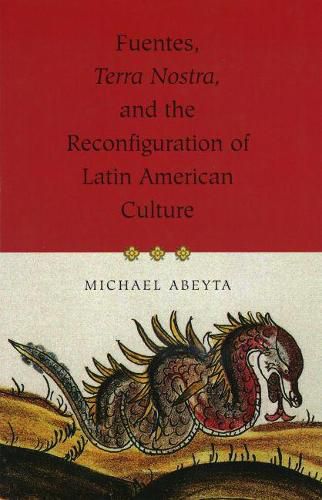Readings Newsletter
Become a Readings Member to make your shopping experience even easier.
Sign in or sign up for free!
You’re not far away from qualifying for FREE standard shipping within Australia
You’ve qualified for FREE standard shipping within Australia
The cart is loading…






Widely acknowledged as Carlos Fuentes’s most ambitious novel, Terra Nostra is a paradigm-shifting work that has generated a virtual cottage industry of scholarly analysis. Michael Abeyta has now taken a new approach to this celebrated novel by considering how giving a gift is like telling a story. Grounding his study on the work of Derrida and Bataille, Abeyta focuses on the theme of the gift in Terra Nostra , analyzing how gift giving, excess, expenditure, sacrifice, and exchange give shape to the novel. The question of giving leads him into contemplations of such parallel issues as money and exchange economies, the gift’s role in art and narration, and the Baroque in Latin American culture. Blending literary theory with economic anthropology, philosophy, and Latin American studies, Abeyta analyzes the deconstructive functions of rhetorical figures and tropes in Terra Nostra to show how the novel’s revival of Baroque style integrates European and Nahuatl figural strategies. In the process, he reveals the novel’s relevance to current discussions about the relationship between art and the question of the gift. He then goes on to examine Fuentes’s Baroque in relation to Terra Nostra ‘s reconfiguration of Latin American cultural history. Abeyta shows how Fuentes’s rereading of Latin American history confronted important changes during the initial encounter between Europe and the Americas, which coincided with the spread of the European market and the shift from a gift to an exchange economy - from a culture in which economic relations were based on sacrifices, tributes, or gifts to one in which market forces predominated. He also engages in the recent scholarly debate on the potlatch and its implications in New World culture.
$9.00 standard shipping within Australia
FREE standard shipping within Australia for orders over $100.00
Express & International shipping calculated at checkout
Widely acknowledged as Carlos Fuentes’s most ambitious novel, Terra Nostra is a paradigm-shifting work that has generated a virtual cottage industry of scholarly analysis. Michael Abeyta has now taken a new approach to this celebrated novel by considering how giving a gift is like telling a story. Grounding his study on the work of Derrida and Bataille, Abeyta focuses on the theme of the gift in Terra Nostra , analyzing how gift giving, excess, expenditure, sacrifice, and exchange give shape to the novel. The question of giving leads him into contemplations of such parallel issues as money and exchange economies, the gift’s role in art and narration, and the Baroque in Latin American culture. Blending literary theory with economic anthropology, philosophy, and Latin American studies, Abeyta analyzes the deconstructive functions of rhetorical figures and tropes in Terra Nostra to show how the novel’s revival of Baroque style integrates European and Nahuatl figural strategies. In the process, he reveals the novel’s relevance to current discussions about the relationship between art and the question of the gift. He then goes on to examine Fuentes’s Baroque in relation to Terra Nostra ‘s reconfiguration of Latin American cultural history. Abeyta shows how Fuentes’s rereading of Latin American history confronted important changes during the initial encounter between Europe and the Americas, which coincided with the spread of the European market and the shift from a gift to an exchange economy - from a culture in which economic relations were based on sacrifices, tributes, or gifts to one in which market forces predominated. He also engages in the recent scholarly debate on the potlatch and its implications in New World culture.